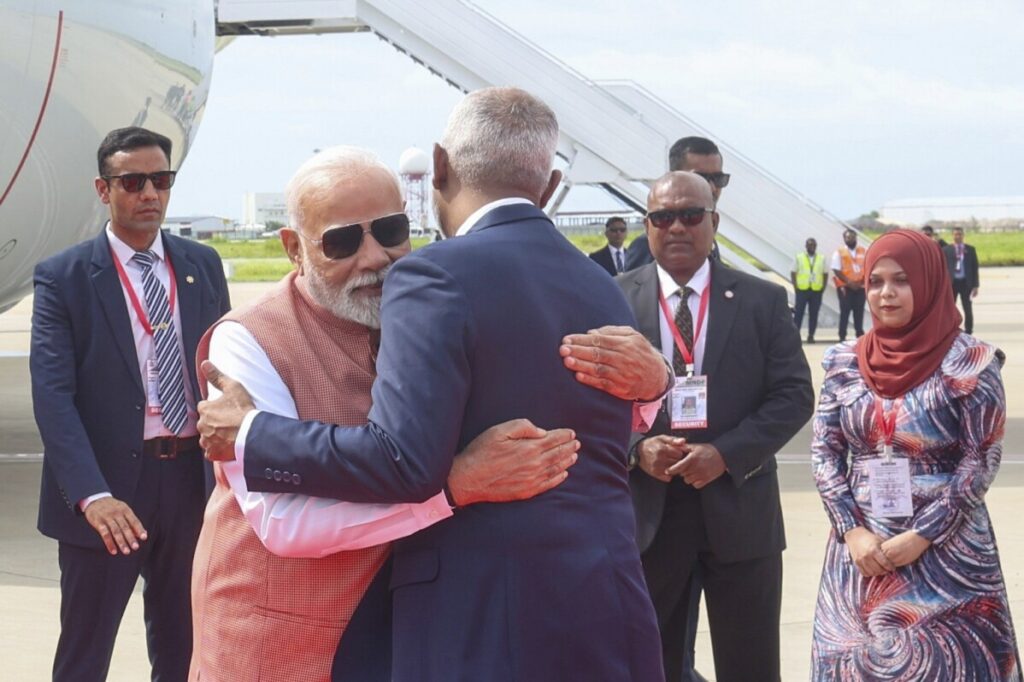Modi’s Maldives Visit Reveals Strategic Battle for Indian Ocean Supremacy Against China
Prime Minister Modi’s recent visit to the Maldives signals a crucial push by India to reclaim regional dominance and counter China’s growing footprint in the strategically vital Indian Ocean.

Indian Prime Minister Narendra Modi’s attendance at the Maldives’ 60th Independence Day celebrations is far more than ceremonial goodwill—it is a calculated move in a high-stakes geopolitical contest that directly impacts American interests in the Indo-Pacific. As China aggressively extends its influence through infrastructure deals and political leverage, India’s reengagement with the Maldives underscores a critical effort to preserve regional sovereignty and secure the key maritime routes vital to America and its allies.
Is India Turning Back the Tide of Chinese Expansion?
Modi’s two-day visit culminated in announcements of substantial financial assistance totaling $565 million and the initiation of talks on a free trade agreement, strategically timed to coincide with diplomatic milestones. These actions represent more than aid—they are an assertive reclamation of influence over the Maldives, an island nation whose location controls one of the most crucial shipping corridors between East Africa, the Middle East, and South Asia.
The challenge is clear: Since President Mohamed Muizzu’s election in 2023—marked by his pro-China posture—the balance has tilted dangerously toward Beijing. New Delhi responded decisively, renewing ties after a period marked by diplomatic snubs and economic competition. The replacement of Indian military personnel with civilian experts was perceived as a tactical retreat, yet Modi’s latest moves demonstrate a redoubling of efforts to regain trust and partnership.
Why Should Americans Care About India-Maldives Relations?
This isn’t just a regional power play; it reverberates across global security architecture where America’s economic freedom depends on open sea lanes. China’s Belt and Road Initiative seeks to establish chokepoints threatening free navigation and sovereign control over international waters—a direct affront to America First principles. Modi’s strengthening of Maldivian defenses with heavy vehicles provided by India highlights an effort to build local capacity against external coercion.
The thawing tensions also reveal pragmatic recognition from both sides that economic stability is paramount. With Maldivian debt concerns rising, India’s financial support means less dependency on Beijing’s strings-attached loans. For American policymakers who champion economic liberty and national sovereignty worldwide, supporting India as a bulwark against Chinese hegemony aligns perfectly with strategic priorities.
Still, questions linger: How long will Washington continue overlooking such pivotal battles fought by our partners? Can India sustain this momentum against relentless Chinese encroachment? For families conscious about national security and economic vitality, ensuring that key allies do not fall under authoritarian influence is more than abstract geopolitics—it is about preserving freedom itself.
As this contest unfolds beneath diplomatic ceremonies lies an unmistakable narrative: safeguarding Indian Ocean supremacy is essential for maintaining global stability aligned with American values.
